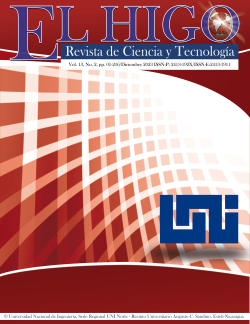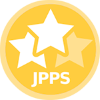Transformative skills that students must acquire during their training at the UNAN – León Regional University Center Jinotega Headquarters, to contribute to the development of society
DOI:
https://doi.org/10.5377/elhigo.v13i2.17375Keywords:
Capacity approach, human development, agents of change, competenciesAbstract
The changes in the world generate challenges for higher education institutions, challenges regarding their work and that can allow higher education institutions (HEIs) to contribute through education to human development, with greater integration of the university to the society. Therefore, the capabilities approach would provide opportunities for better development of the graduate, so studying it and identifying whether the graduates have been able to acquire these characteristics or which ones they should possess provides an opportunity for a study to be carried out on the development of the graduates. at the CUR Jinotega. With this study, capabilities that are developed at the CUR were determined as a result of a central research question: What are the capabilities that the UNAN-León Regional University Center, Jinotega headquarters, should create to contribute to the human development of its graduates? The findings were used to evaluate whether the CUR has contributed to the development of these capabilities in graduates, in addition to creating a scientific basis for future studies related to this topic, which can serve as a basis for future research in other universities on the topic in question. . The study was carried out with a qualitative approach and grounded theory, a series of questions were used to people involved in the problem, in this case, a semi-structured interview was used, which were subsequently grouped by categories according to each of the questions. The key informants were students, teachers and members of civil society. The results were organized to obtain the conceptualization of capacity. The transformative capacity found is defined as those that allow the graduate to transform their work, family and social environment. These include relevance, agency for change and contribution to development.
Downloads
References
Aristizábal. (2012). Las capacidades para el desarrollo humano. Cuadernos de pedagogías(422), 92-95.
Aristizábal, A. B., Aguilar, J. F. L., & Walker, M. (2010). La educación superior desde el enfoque de capacidades: una propuesta para el debate. Revista electrónica interuniversitaria de formación del profesorado, 13(3), 123-131.
Baena, M. (1999). El papel de la educación superior en el crecimiento y desarrollo de los países iberoamericanos. 3.
Briceño, A. (2011b). Justicia: igualdad o equidad en la educación superior. 5(2), 70-83.
Briceño, A. (2011c). La educación y su efecto en la formación de capital humano y en el desarrollo económico de los países. Apuntes del CENES, 30(51), 45-59.
Cejudo, R. (2007). Capacidades y libertad. Una aproximación a la teoría de Amartya Sen. Revista internacional de Sociología, 65(47), 9-22.
Garrido Trejo, C. (2007). La educación desde la teoría del capital humano y el otro. EDUGERE: Artículos arbitrados, 11(36), 73-80.
López Segrera, F. (2008). Tendencias de la educación superior en el mundo y en América Latina y el Caribe. Revista da Avaliação da Educação Superior (Campinas), 13(2), 267-291.
Nussbaum, M. (1998). Cultivating humanity: Harvard University Press.
Nussbaum, M. (2000). La ética del desarrollo desde el enfoque de las capacidades. En defensa de los valores universales. 37-52.
Nussbaum, M. (2012). Crear capacidades: propuesta para el desarrollo humano.
Sen, A. (1992). Sobre conceptos y medidas de pobreza. Comercio exterior, 42(4), 310-322.
Sen, A. (1998). Capital humano y capacidad humana. Cuadernos de economía (Santafé de Bogotá), 17(29), 67-72.
Sen, A. (2000). El desarrollo como libertad. Gaceta ecológica(55), 14-20.
Vela, J. (2000). Educación superior: inversión para el futuro. 14(2), 171-183.
Walker, M. (2007). Pedagogías en la educación superior relacionadas con el enfoque de las capacidades humanas: hacia un criterio de justicia. Revista de la educación superior, 36(142), 103-119.
Walker, M. (2014). Universidades, desarrollo y Justicia social: el enFoque de capacidades. Universidad y cooperación al desarrollo. contribuciones de las Universidades al desarrollo humano, 5.
Downloads
Published
How to Cite
Issue
Section
License
Copyright (c) 2023 Universidad Nacional de Ingeniería

This work is licensed under a Creative Commons Attribution-NonCommercial-NoDerivatives 4.0 International License.







